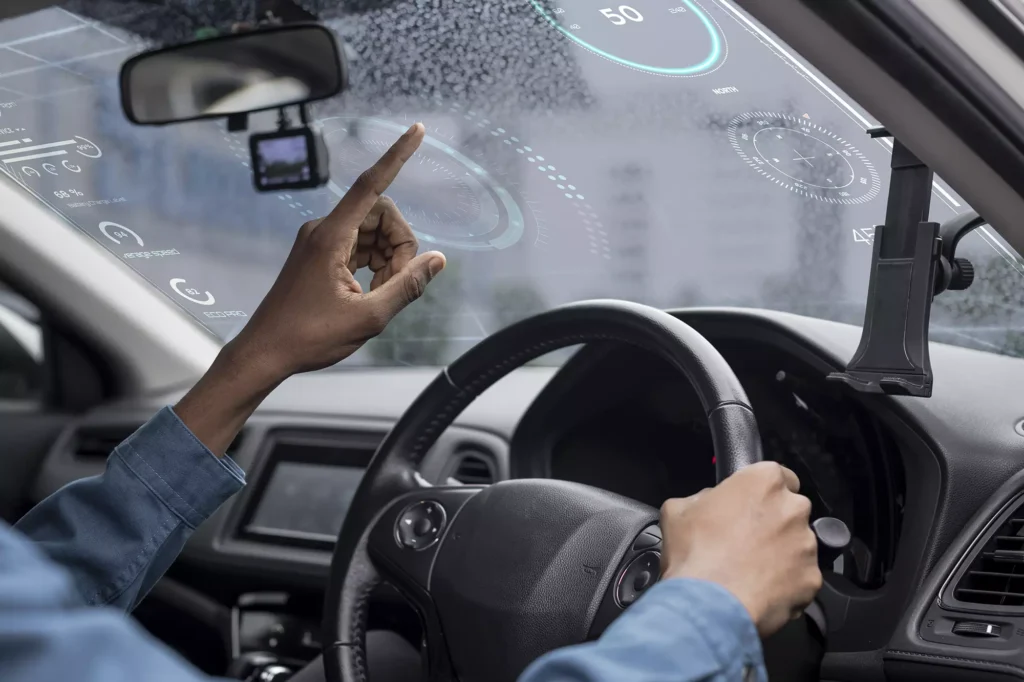Industry Knowledge
Driven by Data: How Artificial Intelligence in Cars is Altering the Automotive Experience
Artificial intelligence and machine learning are rapidly changing the automotive industry as we know it. Learn the many benefits they bring in this quick read.
From the 80’s TV hit Knight Rider to the ever-iconic Batmobile, self-driving cars have been one of the most popular futuristic concepts of the 20th century. It feels like only yesterday when autonomous vehicles were a figment of the imagination- perhaps a sci-fi protagonist’s favored mode of transportation. Fast forward to today, artificial intelligence in cars is a reality with brands like Tesla and Waymo leading the way in automotive AI. Not exactly Batman, but every bit just as exciting and enigmatic.
Artificial intelligence in the automotive industry has transformed everything from how cars are designed to how they’re driven, bringing multiple benefits to both the manufacturer and consumer. AI technology improves passenger safety with driver-assistance features like lane departure warning and blind spot detection systems, to name a few. Automating production allows car companies to optimize processes, reduce costs, and improve manufacturing efficiency.
With all these innovations and tecnhological feats, it’s no surprise that AI self-driving cars are on the fast track to growth. It’s estimated that the global autonomous car market will reach $60 billion by 2030, from a mere $5.6 billion in 2018. But how does AI in autonomous vehicles actually work? Let’s pop the hood and take a closer look.
Intelligence in Motion: How Artificial Intelligence in Cars Works
Self-driving cars and the automative AI within them use neural networks and machine learning (ML) algorithms to navigate their surroundings. Computer vision for autonomous vehicles enables built-in sensors, cameras, radar, and other inputs to take in information from the environment, including things like pedestrians, vehicles, and stoplights. Once such data is gathered, the car’s AI uses complex, real-time algorithms and data to alter its behavior such as speeding up, slowing down, turning to avoid obstacles, and stopping when needed.
Artificial intelligence in cars also utilizes deep learning technology to continuously improve its performance and make better decisions based on experience, resulting in safer, smoother, smarter, and more efficient rides.
Taking the Fast Lane Into the Future: How AI is Changing Cars

Whether it assists the human driver or completely replaces them, AI plays a critical role in improving autonomous vehicles. But how, exactly? Let’s shift gears and go deeper into what specific benefits artificial intelligence in the automotive industry bring.
 Periodic or Preventive Maintenance
Periodic or Preventive Maintenance
AI and ML technology allows an autonomous vehicle to analyze data from sensors in components like brakes, transmissions, and engines to predict when maintenance is needed. This function enables it to identify patterns or mechanical red flags within the car that could suggest issues, letting you take action before a problem occurs.
The AI in autonomous vehicles can also monitor the historical and real-time status of the car’s different parts, such as battery health or tire tread, and lets you know when it needs to be repaired or replaced.
Predictive maintenance promotes safety by constantly monitoring a vehicle’s condition and preventing mechanical incidents and mishaps. It also helps car owners save money as they won’t have to spend on major or significant repairs. Manufacturers and distributors, on the other hand, will benefit from fewer vehicle recalls and product issues.
 Safer Rides
Safer Rides
One of the most important benefits of artificial intelligence in cars is improved safety as autonomous vehicles have built-in sensors that read and react to situations significantly faster than a person can. Not to mention, computers don’t suffer from sleepiness, fatigue, and drunkenness. You won’t have to worry about them texting while driving either.
A self-driving car with radar or lidar allows it to react to situations in 0.5 seconds versus the average human being’s reaction time of 1.6 seconds.
AI algorithms also allow autonomous vehicles to adapt to various driving conditions. Autonomous technology enables cars to adjust their behavior according to factors such as the weather and anticipate the behavior of other vehicles through predictive modeling, making for a safer ride.
 Driver Monitoring & Assistance
Driver Monitoring & Assistance
Artificial intelligence in the automotive industry has enabled manufacturers to produce features and innovations that help aid motorists and enhance the driving experience. Driving monitoring systems, for example, track the driver’s body and head position and detect when a driver is feeling sleepy, tired, or lacking focus, alerting them when needed.
AI-powered voice assistants in cars, which help motorists multitask and keep their eyes on the road, are becoming more of a standard—by 2028, it’s predicted that a whopping 90% of new vehicles will have such a feature. This technology utilizes Natural Language Processing (NLP) to understand and act upon the user's commands.
Other automotive AI driving aids include adaptive cruise control (ACC), which automatically adjusts a car’s cruising speed based on the movement of other vehicles on the road. Automatic emergency braking (AEB) predicts potential vehicular accidents and independently applies a vehicle’s brakes to prevent a collision or reduce the impact of a crash.
These are just a few of what artificial intelligence in cars can provide as benefits to transportation. However, implementing such technology on vehicles takes a lot of time and effort to develop. As a manufacturer or related service provider, you’ll need a trusted partner to provide high-quality training data for your automotive AI system.

 The Best Route to Success
The Best Route to Success
Recognized as the Everest Group’s World’s Fastest Business Process (outsourcing) Service Provider in 2022 and highly rated in the Gartner Peer Review, TaskUs is responsible for providing Ridiculously Good AI services with an emphasis on human-in-the-loop systems.
TaskUs delivers comprehensive services to support autonomous driving development at every stage and is uniquely positioned to handle both large-scale data needs and complex workflows for real-time support and fleet management. TaskUs has been partnering with some of the top autonomous vehicle companies worldwide, including in-production Level 3 and 4 AV providers.
We have established a standard operation process that guarantees near-perfect scores on productivity and efficiency in various industries such as FinTech, Entertainment + Gaming, Healthcare Tech, and Retail + eCommerce.
Let Us be your sophisticated, AI-powered vehicle to success, powering your solutions and taking you where you need to go.
References
We exist to empower people to deliver Ridiculously Good innovation to the world’s best companies.
Services









